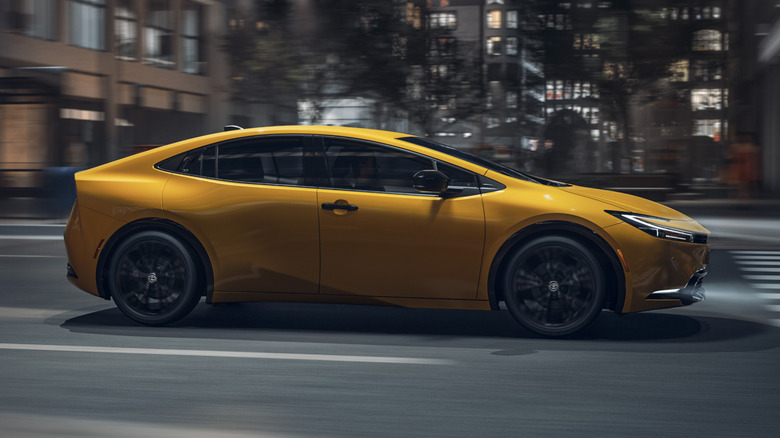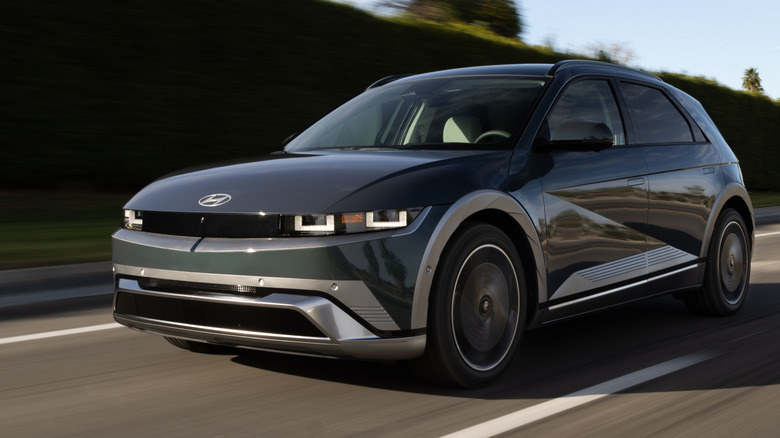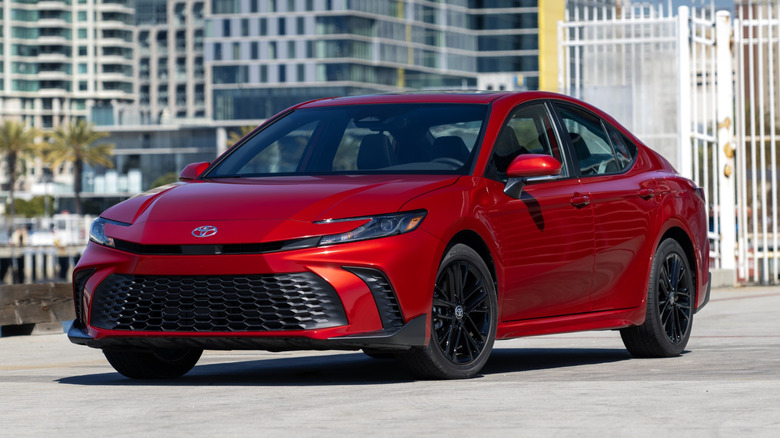Do Hybrids And EVs Really Get Better MPG When City Driving?
For decades, when considering a vehicle's fuel economy, both in terms of EPA ratings and in the real world, we were conditioned to expect highway numbers to exceed those in the city, often substantially so.
With pure gasoline vehicles, it makes sense. An internal combustion engine is more efficient at a steady highway speed and constant RPM, and will deliver much better fuel economy than when it's constantly accelerating and then slowing down. To look at it simply, in city driving, each time you come to a stop, you have essentially wasted all the energy you used to get up to speed.
But with the advent and then growth of hybrid and electric vehicles, those ratings are often flipped, with electrified vehicles having better efficiency in city driving than on the highway. Depending on your commute, this could be a major money saver. But is this always the case in the real world? Generally, yes, but the lines can get blurry pretty quickly.
The reason hybrids and EVs excel in city driving is battery regeneration. Whether you are talking about a traditional hybrid, a plug-in hybrid, or a full EV, all of them are going to use some form of regenerative braking. That's when a car uses the kinetic energy of slowing down to feed electric energy back into its battery. This is done both by lifting off the throttle and applying the friction brakes when slowing or stopping.
Why are electrified vehicles more efficient in the city?
In stop-and-go driving, this flow of energy back into the battery improves efficiency on pure EVs and allows hybrids to run longer without using their gasoline engines. Additionally, EVs and hybrids don't need to run an engine while stopped, further improving efficiency. Of course, many gas cars now have engine stop/start as well these days, and that's raised its own questions about engine longevity.
When it comes to real-world efficiency, EVs and hybrids indeed usually do better in the city than on the highway, but sometimes the differences aren't as stark as they are made out to be. Per Car & Driver's extensive testing, some EVs deliver but a fraction of their EPA-rated range at sustained highway speeds, while others meet or even exceed it.
Hybrids, meanwhile, often do great in both stop-and-go city driving and on long highway road trips. A new Toyota Camry SE hybrid, for example, is EPA rated at 48 MPG in the city and 47 MPG on the highway, meaning there should be little difference in your fuel economy while putting around the city or cruising on the highway, at least by the EPA's testing methods.
Not all driving is created equal
Whether you are talking about a hybrid or an EV, the faster you drive on the highway, the less efficient you'll be. It's simple physics, after all. More speed requires more energy, and long highway drives don't provide many opportunities for regenerative braking. That drop-off in highway range, along with the issue of sparsely placed charging stations, is a major cause of EV range anxiety, and one of the major things keeping drivers from using their EVs as long-distance road trip cars.
On the other side of the issue, hybrid owners regularly report that their efficiency numbers are not great on very short drives where the gasoline engine doesn't have time to warm up. If you are, for example, hopping into that aforementioned Camry SE in the morning for a short one-mile drive to the coffee shop, you'll be running your gasoline engine more than usual. And thus, your actual MPG for that trip will likely be far lower than the EPA's 48 MPG rating.
Ultimately, real-world experience and testing back up the assumption that hybrids and EVs are generally more efficient in city driving than on the highway, but your mileage may vary. Your specific vehicle, the weather conditions, trip length, and driving style will have major effects on just how big that difference is.


